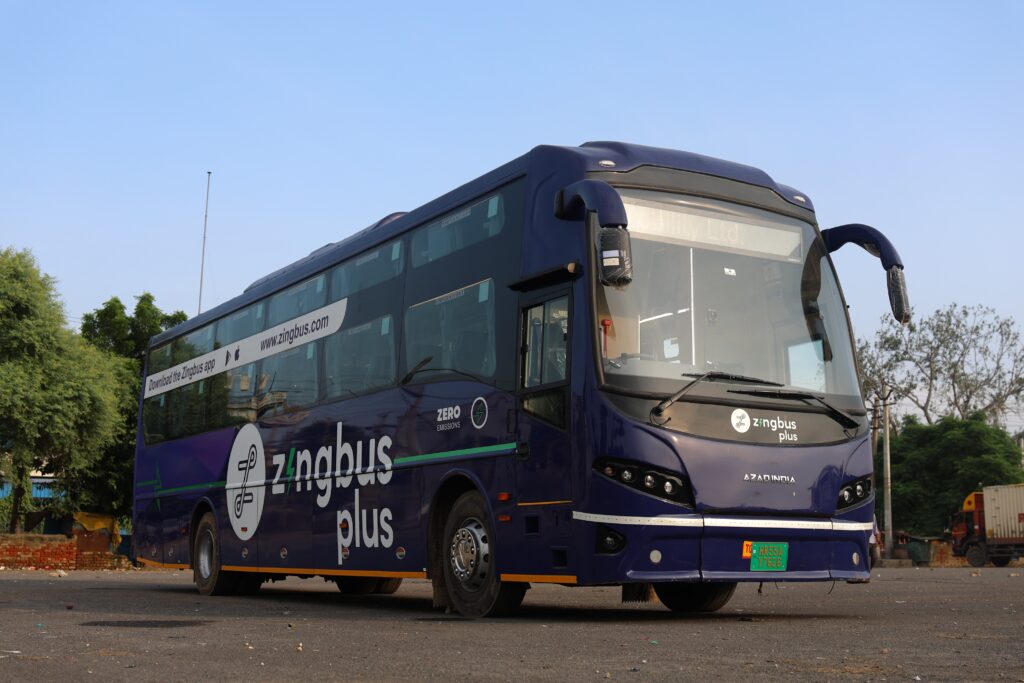-
zingbus Beaches in India Brand Budget Trip Bus booking app Business Cities Dehradun Delhi Electric Buses Experience Family Travel Guide India Travel & Culture Guide Islands in India Manali Mountains New Delhi Offbeat Destinations Places To Visit Rainy season/Monsoon Road trips Route Specific Season Solo Trip South India States of India Things To Do Towns Travel Guide Trip Uttarakhand Village Waterfalls in India Winter
zingbus Maxx vs Other Luxury Buses: Complete Comparison 2025
-
Mountains Activities Camping Camping in India Delhi Himachal Pradesh Travel Guide India Travel & Culture Guide Jungle Safari Kohima kullu Nagaland New Delhi Other Activities Paragliding Paragliding in India States of India Travel Guide Trekking Trekking in India Treks in India Water Sports Water Sports in India
Winter Trekking Adventures Await: Delhi to Kullu and Beyond by Bus
-
Travel Guide, Agra, Amritsar, Budget Trip, Bus booking app, Chandigarh, Cities, Delhi, Electric Buses, Experience, Family Travel Guide, Festivals, India Travel & Culture Guide, Mountains, New Delhi, Places To Visit, Punjab, Road trips, Route Specific, Solo Trip, States of India, Things To Do, Towns, Trip, Village, Yatra, zingbus
Guru Tegh Bahadur Ji And His 350th Martyrdom Day: History, Gurdwaras And Pilgrimage Routes To And From Delhi
On his 350th martyrdom day, Guru Tegh Bahadur Ji is remembered across India as Hind Di Chadar, the shield of…
-
zingbus, Beaches in India, Brand, Budget Trip, Bus booking app, Business, Cities, Dehradun, Delhi, Electric Buses, Experience, Family Travel Guide, India Travel & Culture Guide, Islands in India, Manali, Mountains, New Delhi, Offbeat Destinations, Places To Visit, Rainy season/Monsoon, Road trips, Route Specific, Season, Solo Trip, South India, States of India, Things To Do, Towns, Travel Guide, Trip, Uttarakhand, Village, Waterfalls in India, Winter
zingbus Maxx vs Other Luxury Buses: Complete Comparison 2025
The intercity bus travel landscape in India has transformed dramatically. Today’s travelers no longer compromise between basic comfort and premium…
-
Mountains, Activities, Camping, Camping in India, Delhi, Himachal Pradesh Travel Guide, India Travel & Culture Guide, Jungle Safari, Kohima, kullu, Nagaland, New Delhi, Other Activities, Paragliding, Paragliding in India, States of India, Travel Guide, Trekking, Trekking in India, Treks in India, Water Sports, Water Sports in India
Winter Trekking Adventures Await: Delhi to Kullu and Beyond by Bus
For adventure enthusiasts and trekking devotees, Kullu Valley represents a gateway to some of the Himalayas’ most spectacular trekking routes….
-
Mountains, Activities, Camping, Camping in India, Cities, Himachal Pradesh Travel Guide, India Travel & Culture Guide, Jungle Safari, Kohima, Manali, Nagaland, Other Activities, Paragliding, Paragliding in India, Season, States of India, Towns, Trekking, Trekking in India, Treks in India, Village, Water Sports, Water Sports in India, Winter
The Ultimate Delhi to Manali Route Experience: Winter Road Trip
When winter blankets the Himalayas in snow and transforms high-altitude regions into crystalline wonderlands, the Delhi to Manali bus journey…
-
Mumbai, Beaches, Beaches in India, Delhi, Family Travel Guide, India Travel & Culture Guide, Maharashtra, New Delhi, Places To Visit, Pune, Pune Travel Guide, States of India
Mumbai to Pune: A Quick and Cozy Winter Bus Ride for Busy Professionals
Pune stands merely 150 kilometers from Mumbai, yet the two cities couldn’t be more distinct in character. While Mumbai represents…
-
Delhi, Beaches, Beaches in India, Bus booking app, Family Travel Guide, India Travel & Culture Guide, Mahabaleshwar, Maharashtra, Mumbai, New Delhi, Places To Visit, Rainy season/Monsoon, Road trips, Season, States of India, Travel Guide, zingbus
Travel Smart This Winter: zingbus’s Non-Stop Delhi to Mumbai Route
In today’s fast-paced world, time represents our most valuable commodity. When traveling between Delhi and Mumbai, the commercial hubs of…
